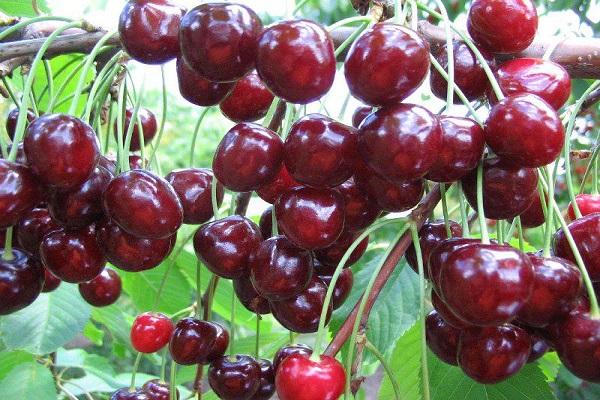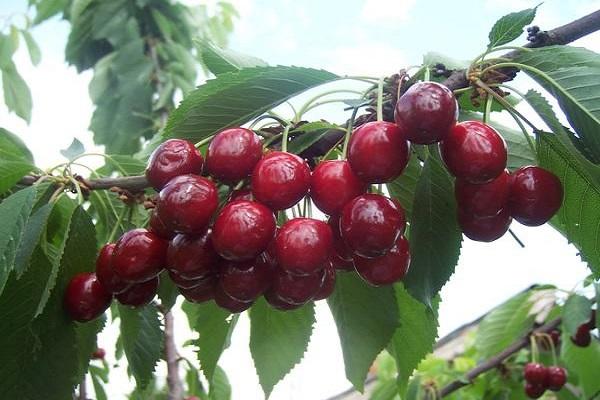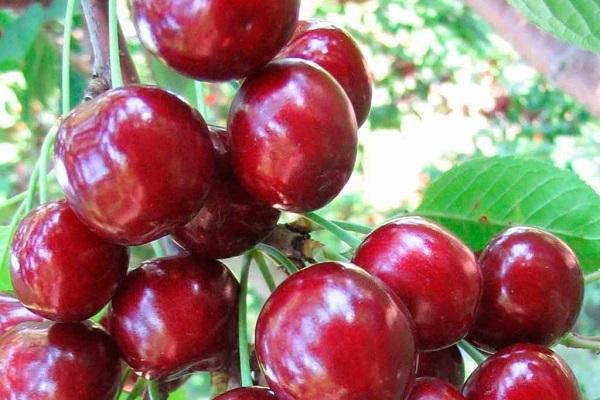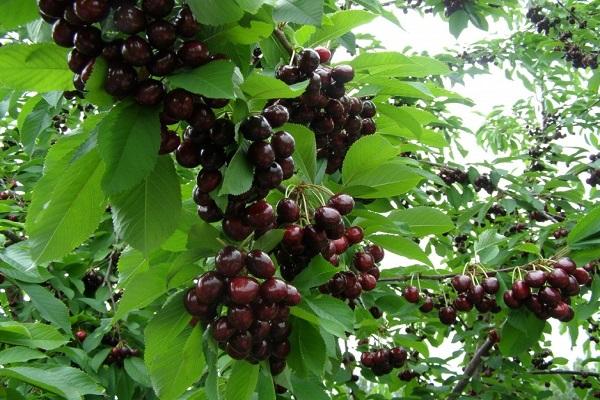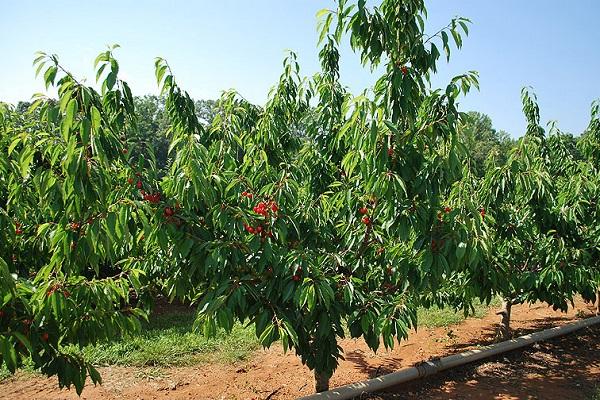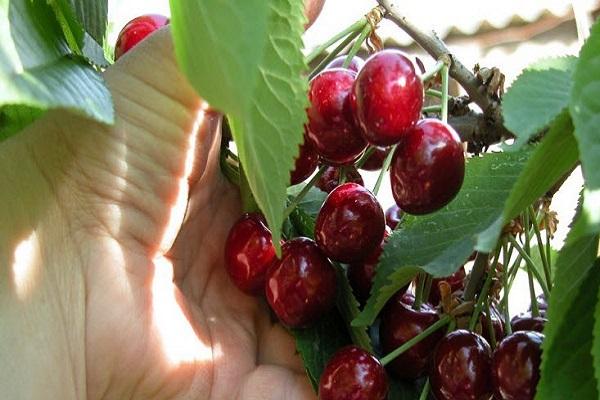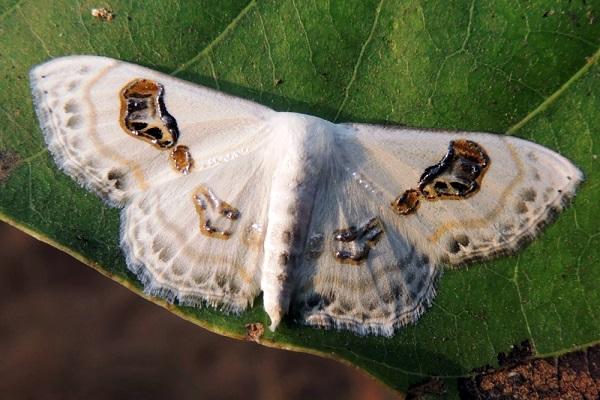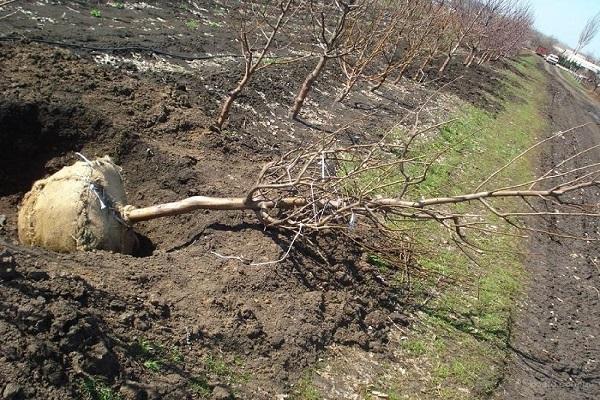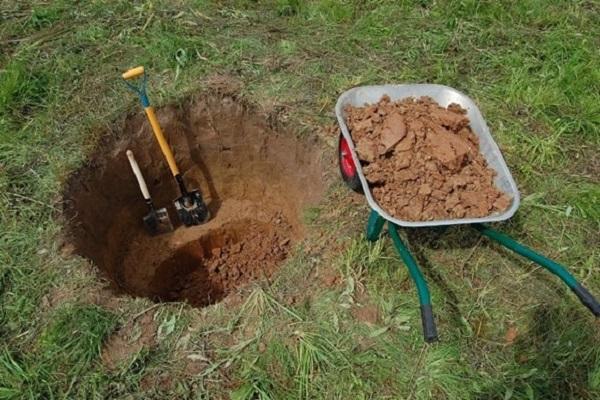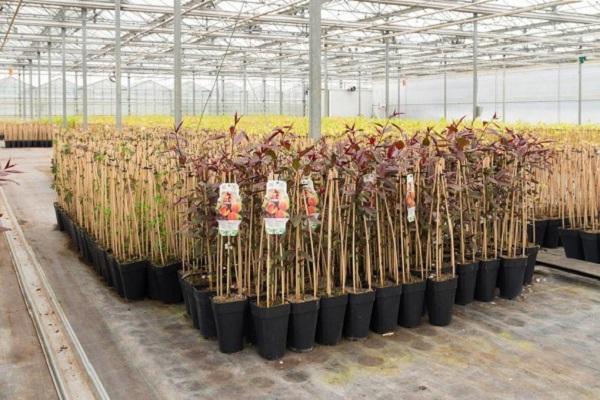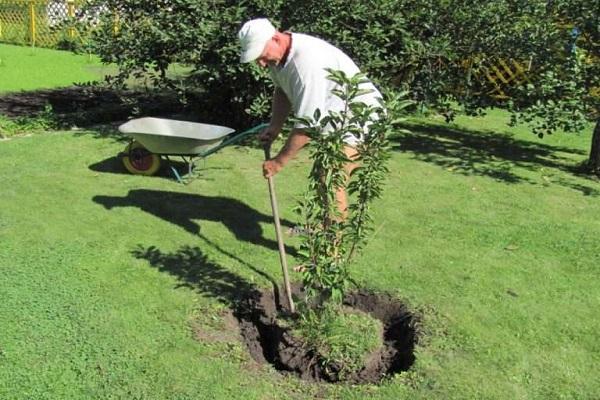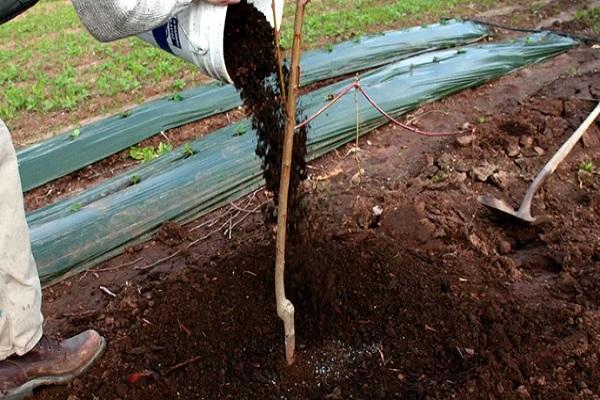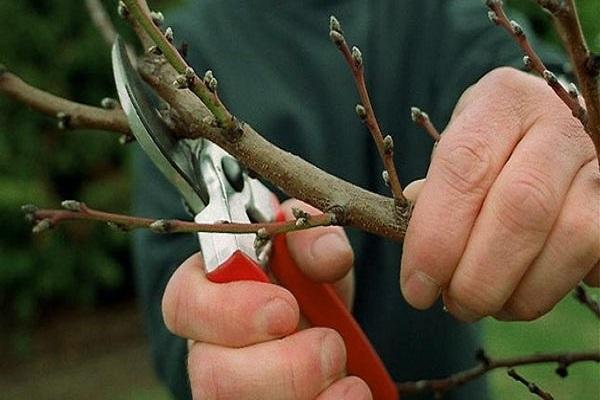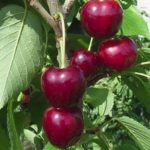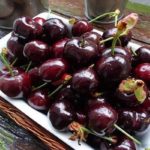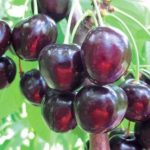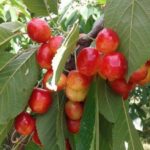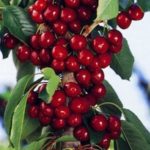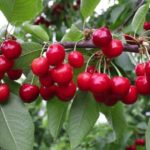It is believed that cherries are a southern plant that cannot be grown in the temperate climate of the middle zone. But this is a mistaken opinion of most gardeners. There are hybrid varieties of cherries that are bred by breeders specifically for cultivation in any region. The winter-hardy cherry Tyutchevka belongs to these varieties.
- History of origin and region of growth
- Pros and cons: is it worth planting?
- Description of the variety
- Height and size of the tree crown.
- All about flowering, pollination and fruiting
- Productivity and Application
- Transportability
- Reproduction Tyutchevka
- Characteristics of the variety
- Frost resistance and drought resistance
- Susceptibility to diseases and pests
- Planting cherries on the site
- Recommended timing
- Selecting a site and preparing a planting hole
- How to choose a healthy and strong seedling
- Technological process of disembarkation
- Cultivation care
- Irrigation and fertilization of trees
- Rejuvenating and shaping pruning
- Tree trunk care
- Preventative treatments
- Shelter for the winter
- Reviews from summer residents about the variety
History of origin and region of growth
Tyutchevka appeared in the State Register in the early 2000s. The basis of the new plant variety was the “3-36” cherry, crossed with the “Red Dense” variety. Work to create the species was carried out at the Bryansk Research Institute.
The result is fruit crops that are resistant to harsh winter climates. Now the tasty berry variety Tyutchevka is grown both in the southern regions of the country and in the Urals. But the new cherry variety got its name because of the chief breeder’s love for the poetry of the great poet Tyutchev.
Pros and cons: is it worth planting?
Like every plant, this type of cherry has its own advantages and disadvantages, based on which gardeners decide whether to plant a tree in their gardens or not.
Advantages of Tyutchevka cherries:
- Frost resistance. Even at low Ural temperatures, the plant quickly recovers in the spring.
- Large, juicy and sweet fruits.
- With thin skin, the fruits have a long shelf life, which allows the delicacy to be delivered to remote places.
The main disadvantages of the variety are:
- Intolerance to excess moisture. Prolonged rains have a negative impact on the harvest. The fruits crack and rot, which leads to large losses of tasty and healthy delicacies.
- The variety has poor self-pollinating capabilities; an additional pollinator is required.
Important! Take this into account when planting seedlings! An excess of soil and groundwater will destroy the plant.
Description of the variety
Tyutchevka cherries have high taste and productivity, which makes this type of fruit crop attractive for growing in gardens and vegetable gardens.
Height and size of the tree crown.
Fruit trees of the Tyutchevka variety rarely grow above the 3.5-4.5 m mark. The crown is spherical, spreading, with thick branches that are brown in color. The large green leaves are smooth, with pointed tips and serrated edges.
All about flowering, pollination and fruiting
Each cherry inflorescence has 4 flowers with touching petals, from which fruits subsequently appear. The Tyutchevka cherry is considered a late variety, which is why the plant’s flowering period occurs at the end of spring and beginning of summer. Ripe cherries are harvested in August; sometimes, under favorable weather conditions, the harvest ripens by the end of July.
The variety has poor self-pollinating capabilities, no more than 6% of ovaries. Therefore, planted single plants will not be able to bear fruit. It is recommended to plant several cherry seedlings at once. Any variety of this fruitful crop with suitable flowering times will become a pollinator. The difference in the beginning of the active flowering period of the plant should not exceed 3-4 days.
If similar trees are grown in neighboring areas, they can also become pollinators for your cherries. Ripe fruits are large, some weighing 7.5-8g.
Productivity and Application
With proper pollination, Tyutchevka begins to bear fruit in the 5th year of its growth. This variety of cherries is rightfully famous for its large, juicy and sweet-tasting fruits. On average, up to 20 kg of crop is harvested from one tree.With proper care and favorable weather conditions, the figure increases to 40 kg per fruit tree.
Ripe dark red cherries are eaten fresh. The fruits contain vitamins, minerals and amino acids that are necessary for health and proper functioning of the body..
Cherries are canned, preserves, confitures and jams are made, juices, nectars, and desserts are made. For longer storage, cherry fruits are frozen. In dairy products, cherry fruits are found in the production of yoghurts and soft curds.
Transportability
Correctly and timely harvested crops can easily be transported even over long distances. Although the skin of the fruit is thin, it is durable and well protects the dense pulp.
Reproduction Tyutchevka
There are several ways to propagate your favorite cherry variety:
- Growing cherries from seeds. In this case, the fruit crop will lose almost all the properties of its variety.
- Propagation by cuttings. Cuttings are cut from an adult crop in the summer. But before the first cold weather, they may not have time to grow and gain the strength necessary for wintering. Therefore, you will have to take care of young plants throughout the winter.
- Reproduction by layering. Using this procedure, strong and viable seedlings are obtained. Young seedlings take root well and begin active growth from the first days of planting.
Only at first glance it seems that the propagation of fruit crops is a complex and lengthy task. Once you start and try, everything will become simple and clear.
Characteristics of the variety
The Tyutchevka cherry variety was bred specifically for regions with temperate and harsh climates, but in the southern parts of the country, this plant also feels good.
Frost resistance and drought resistance
Sweet cherries easily tolerate harsh winters and even during the flowering process, slight frosts are not a hindrance for them. After hibernation, the variety quickly enters its life cycle and gains strength. Tyutchevka cherry is resistant to arid climates, but during severe and prolonged drought it requires additional moisture.
Susceptibility to diseases and pests
This variety is immune to many diseases. But cherries can be protected from fungal infections only with proper and timely care. Trees are also affected by pests, which damage not only the yield, but also pose a threat to the life of the plant.
The main enemies of fruit crops:
- The moth eats young buds and inflorescences.
- The weevil causes irreparable damage to the crop and destroys the ovaries.
- The cherry fly lays larvae on the plant, which destroy the foliage and ripened crops.
- Aphids form their numerous colonies on the reverse side of the leaves.
At the slightest manifestation of disease or plant infestation by pests, urgently take measures to treat the tree and further treat it.
Planting cherries on the site
Many factors influence the development and productivity of Tyutchevka. But the most important of them is the correct and timely planting of seedlings.
Recommended timing
Planting seedlings depends on the climatic conditions of the region of residence. In the southern regions the tree is planted in the fall. Before the onset of frost, the plant has time to take root and can easily withstand the winter cold. In areas with early frosts, trees are planted in open ground in the spring. This procedure is done immediately after the snow melts, before the first buds on the trees swell.
Selecting a site and preparing a planting hole
Cherry does not like the close proximity of other fruit crops.Therefore, a plot of garden or vegetable garden is allocated for seedlings at a distance of at least 5 meters from other plants. Trees will grow and develop better on a small hill or plain on the southern side of the site, well illuminated by sunlight.
An important point when planting seedlings is the condition of the soil. Trees love fertile, loose soil.
Planting seedlings begins with digging a hole:
- Depth – 50-70 cm.
- Diameter – 60-90 cm.
The dug hole is filled with earth mixed with humus and fertilizers. The pit should remain in this form for 1-1.5 months and only then trees should be planted in it.
Important! The place for planting seedlings is prepared and fertilized in advance. Soil containing high acidity is neutralized with lime.
How to choose a healthy and strong seedling
You need to select and buy seedlings of a hybrid fruit plant in special nurseries or garden centers. First of all, examine the appearance of the seedling. It should be without obvious damage, free from broken branches, mold deposits, traces of pests and rotting. The age of a plant ready for independent growth in open ground is 1-3 years.
When examining a seedling, special attention should be paid to the root system. The roots should not have obvious damage and should be carefully cut, but not too short. The main determining factor in choosing the right variety is the leaves of the Tyutchevka cherry. They have an oval shape with a pointed top, the stalk is short, almost invisible.
Technological process of disembarkation
Purchased seedlings are planted in pre-prepared holes. The root system of the plant is carefully distributed in the hole and sprinkled with earth. There should be no voids without soil between the roots. The soil around the plant is carefully compacted.After successful planting, the tree is watered abundantly.
Cultivation care
The Tyutchevka cherry variety is considered unpretentious. However, in order to get a large harvest of tasty and healthy fruits, you still have to make an effort.
Irrigation and fertilization of trees
Cherry does not tolerate heavy soil moisture. Watering is necessary for the plant based on the weather conditions of the region. In the middle zone of the country, it is enough to irrigate the tree abundantly only 3 times a season. In hotter areas, the watering schedule should be more frequent. During prolonged rains, the area of ground under the tree is covered with film or other waterproof materials.
If the seedlings were planted according to all the rules, then the tree will not need additional feeding for 2-3 years. Next, the cherries are fed in the spring, once every 2-3 years, with natural and nitrogen fertilizers.
Rejuvenating and shaping pruning
Young trees undergo formative pruning annually. This procedure allows you to extend the life of the plant and get a high yield.
To do this, several strong shoots are selected, which will serve as the base of the crown, and the remaining branches are cut off. Every year the tree increases by 1 tier. Pruning is done in the spring, while the cherry tree is dormant. In mature trees, root shoots and weak or dry branches are pruned.
Tree trunk care
Loosening, hilling and mulching of the tree trunk circle is especially necessary in arid regions. The procedure is also carried out before the winter months. Throughout the season, weeds and young growth that interfere with development and growth are removed around the trunk.
Preventative treatments
Every year, preventive spraying is carried out in spring and autumn.It is best to carry out such procedures with natural preparations that you can prepare yourself. But if this is not possible, then special products can be purchased in stores.
Important! Chemicals are used with caution during fruit ripening.
Shelter for the winter
Preparatory work for wintering cherries includes the following steps:
- Abundant watering of trees. Moist soil protects the root system from frost because it freezes much more slowly than dry soil.
- Plants are insulated with burlap or special fiber.
- During snowy winters, snowdrifts are raked around the trees.
- The bark is coated with manure or lime, covered with mesh or roofing felt, otherwise forest animals will damage the plants.
By following all the rules for growing and caring for Tyutchevka cherries, you will get a large and tasty harvest.
Reviews from summer residents about the variety
Svetlana. Moscow region.
Cherries are my favorite crop, but, unfortunately, they are early. This is where my favorite tree in the country, Tyutchevka, comes to the rescue. We enjoy its fruits all summer long, but we don’t have time to harvest a bountiful harvest.
Rita. Saratov.
We bought two Tyutchevka cherry seedlings for our dacha. Both took root immediately and are already producing a bountiful harvest. We eat cherries fresh, they are very tasty. I freeze some for the winter, my family loves to eat ice cream with them.

